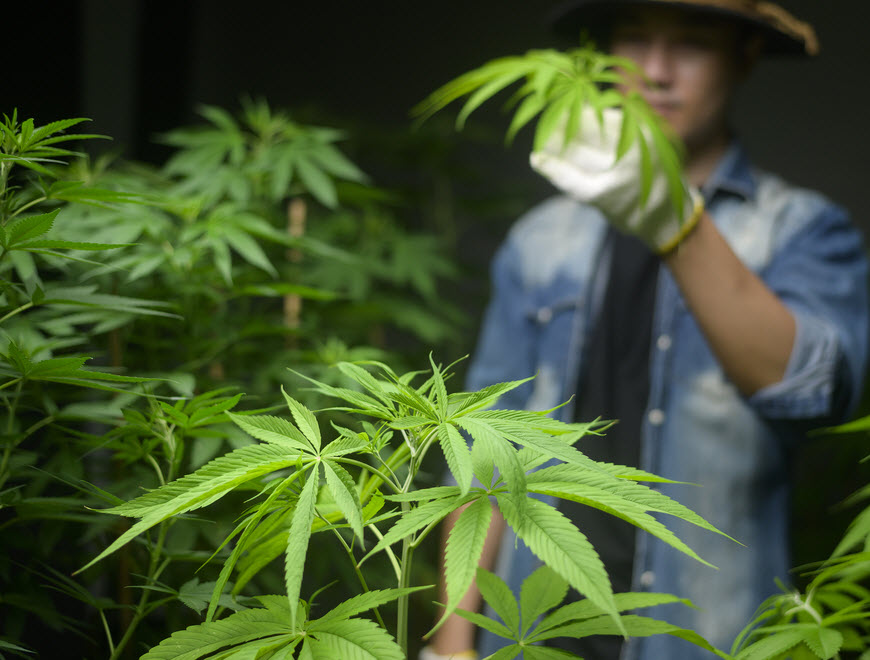
Why the FBI is investigating narco weed slavery for illegal cannabis cultivation in Oregon
Oregon has some of the best cannabis crops in the United States. However, a closer look at how the larger percentage of these crops are grown and harvested will put most people off. People like you and me have been reduced to narco slaves because of peanuts. As it stands, there is no end in sight as the slave masters (illegal operators) fuel these activities on a daily basis.
Narco slavery in Oregon
Oregon has become a prime location for growing illegal cannabis. The state has an optimal environment for the production of cannabis plants. The proximity to California is also an additional advantage for illegal operators. Over the years workers have been found in these devastated places living in appalling conditions.
Local police reports often describe the worrying cases of workers living in dangerous conditions without adequate drinking water, clean clothes and mattresses. Images shared in 2021 from the discovered Oregon County sites showed these workers being exposed to harmful chemicals, with their personal effects being kept in trash bags and other polyethylene materials. Some have been pictured near fire hazard electrical outlets built with plywood. To sleep, most of these workers stay in makeshift tents, shipping containers, or even outside in the cold with thin clothing and tiny pieces of cardboard that serve as mattresses.
The more drug slaves work on a property, the more guns, marijuana, cash, and other prohibited substances will be found on site. The majority of these illegal pot growers lure undocumented and underage residents to work on these sites with the promise of good pay. Only these people are trapped and cannot leave of their own free will.
During a raid, the police examined the workers to see if they were being held against their free will. Many of these workers denied this. It is still unclear why. Since they are rarely paid and denied good food, it is obvious that they are not allowed to go.
The term “narco-slavery” is used to describe this situation. It was coined based on the worker’s exposure to drugs and illegal activities.
Effects of narco-slavery in Oregon and neighboring states
Narco-slavery has different negative effects on the resources and residents of Oregon and California. Human trafficking for work is on the verge of becoming slaves. The activities of these plants have also depleted the region’s resources. In the Jackson and Josephine counties, local law enforcement agencies reported massive, systematic water theft that worsened the drought in the area. Harmful polluting chemicals used in the area have also been damaged by toxic polluting chemicals.
The financial aspect of these activities has practically ruined many licensed cannabis growers unable to compete with the meager prices these illegal operators are selling their crops. In a letter addressed to the state government and lawmakers, Oregon counties asked for state law enforcement interference. They stated that these illegal operations have overloaded local law enforcement agencies and therefore cannot be eliminated without outside help.
A huge problem for the FBI
The FBI has launched a complex investigation into the condition of the drug slaves and the cartels that run the farms.
They unearthed evidence that many of these workers were illegally relocated from Mexico. This makes it easy for them to be exploited, as it is not possible to report them to the authorities.
Some also crossed the border because of their membership of drug cartels in their home countries. These people have to do inhumane work to compensate the influential organizations for crossing the border.
According to Dave Daniel, Josephine County Sheriff, the cartels have overpowered local security forces. To hide and expand their operations, they have rented properties from local residents. Daniel said his office could see at least 50 illegal plants burst in a year.
In the recent raid, organized by a joint task force made up of the FBI, Homeland Security Investigations (HSI) and local law enforcement, Daniel said the alleged locations were on two adjacent lots, one of which was approximately 1,300 acres . He said about 200 workers were found working in painful conditions. Speaking to one of the workers, the team learned that they worked six days a week and were only fed twice a day.
Daniel said that while the situation is comparable to camping, it is far from it. The victims were scattered in tents arranged in rows of trees at about 100 degrees. Some stayed in the greenhouses and used a plastic cover to keep themselves warm. There was no running water or cooling. Put simply, the workers suffered.
The hope of an end to narco-slavery
Daniel Dave stated that these narco slaves refused to be helped during this raid. The workers interviewed even denied trafficking in human beings. The dishonesty of these workers about their inhumane working conditions and the circumstances surrounding them has limited the help of these forces.
However, that dishonesty has been linked to the likely fear that the cartel might harm their families as punishment for speaking. Daniel added that the cartels could have them deported or demand immediate payment of the debt owed. In extreme situations, many of these workers could face physical injury or even death.
A better and more effective strategy to get rid of these illegal operations will be the best way to end drug slavery. The US Attorney’s Office DEA, HIS, and all local law enforcement agencies in southern Oregon held a meeting in November to determine the best route to take.
Final note
Legal cannabis growers and workers deserve their sunshine and rainbows to be snatched by illegal cannabis growers. Narco slaves also deserve to have their lives back without working or suffering in these illegal growing areas. Overall, a level playing field is required.
Before it’s too late, state governments should take immediate action to alleviate the suffering of these workers, reduce the financial losses suffered by legal operators, and most importantly, send an unforgettable message to the cartel masters that Oregon cannot be used for illegal drug activities . State legalization or decriminalization of cannabis could turn things around in this region and other states, like California, plagued by illicit drug activity.
HIKING GUARD, READ MORE …

COLORADO’S DARK WEED – HIKING WORKERS IN WEED.
OR..

WHAT IS IT LIKE TO WORK ON AN ILLEGAL CANNABIS GROWTH IN OREGON?

Post a comment: